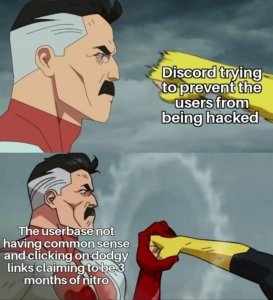Wondering how to protect yourself against crypto and NFT scams may not be top of mind when you’re on the verge of apeing into a new investment that you’re hyped up about!
If you’re like me – just an average trusting person – you’ve been scammed at least once in your life. Boy does it sting!
Maybe it was that time you were promised a brand new iPhone if you just sent a few hundred dollars to an offshore bank account or that time when the Prince you’re supposedly related to needed just a little more money to release your inheritance. Or that pesky car warranty company swearing the car model you’ve never owned is about to expire and – if you send a few iTunes gift cards to someone in a country you’ve never heard of – it will all be ok.
Unfortunately, scams are becoming more and more common in the world of cryptocurrency and non-fungible tokens (NFTs).
Cryptocurrencies and non-fungible tokens (NFTs) are all the rage right now, with their impressive prices and endless opportunities for speculation – it can feel like a modern-day gold rush to new traders who are hoping to strike it rich.
However, as with any new technology, there are also scams and fraudsters waiting to take advantage of unsuspecting investors. Even if you can click away from a bad link – it may be too late. Savvy scammers can gain access to your desktop, seed phrase, and wallet if you aren’t protected.
In 2021 alone:
- NFT trading surpassed $44 billion in transactions. An estimated $8.9 million was for scams and theft.
- Cryptocurrency trading exceeded $15.8 trillion in transactions. An estimated $14 billion was lost to scams and theft.
Some scams are more obvious than others. That’s why it’s important to take the time to be aware of what to look out for and how to protect yourself from fraudsters.
In this post, we’ll show you 9 ways to protect yourself against these scams and make sure your hard-earned money doesn’t go up in smoke.
1 – Take your time before making a financial decision
Yes, you might miss that hyped-up ape derivative at that low floor price, but you are also protecting yourself from a higher chance of avoiding getting scammed. You don’t want to be known as the person who overpaid for an NFT!
I get it – it’s easy to get excited about an opportunity you want to pursue… it happens to everyone. Like any other investment strategy, it is better to protect your already accumulated wealth, instead of aping into projects with ridiculous returns that might turn out to be rug pools or scams.
Take your time before making a financial decision – all investments involve risk, but you’re increasing your risk when you jump to conclusions and skip the research. The quicker you act, the more speculative the purchase.
Some ways to make sure you are taking enough time to do your own diligence:
- Triple-check every decision before you commit
- Research the project’s website and whitepaper
Also, be honest with yourself – your goals, what you can afford, and your expectations. Are they realistic? Are they too good to be true? You can even use the “5 whys” to write down why you want to make the investment and make sure you’re thinking deeply enough about the decision before you make it. If something sounds too good to be true on a site, it probably is.
2 – Never ever ever ever share your seed phrase or private key
 I repeat: NEVER give out your seed phrase and private key. Not to your boo. Not to your cat. Not to your bestie. This should be your mantra in the crypto / NFT investing spaces.
I repeat: NEVER give out your seed phrase and private key. Not to your boo. Not to your cat. Not to your bestie. This should be your mantra in the crypto / NFT investing spaces.
There are 0 cases in which you should or need to give someone your seed phrase or private key. If anyone ever asks you from that, you can know that they are after your funds and you will be scammed if you go through with it.
The only time you need it is to import your wallet to another computer/browser and it’s only something YOU need to conduct the import and transfer – the recipient will never need this. Never ever. If it sounds redundant, it’s because it is. It’s heartbreaking to hear about folks giving out their private keys or seed phrases. To keep it safe, you can:
- Print it out and put it in a weatherproof safe or a lockbox where only you have the key
- Put it in your will (as long as it’s private)
- Store it in a secure steel plate and put it in a lockbox or weatherproof safe where only you have access
Treat your seed phrase like social security number: handle it with extreme caution. If someone gets it, they can take anything from your crypto wallets. Also, if you lose it, there’s no way to recover it.
3 – Block DMs on Discord
 In recent months, crypto and NFT enthusiasts have embraced Discord as a means to stay connected to the community. Scammers have taken notice of this, which is why so many new scams are now taking place on Discord. To protect yourself from getting an elaborate scam from someone in your DMs, block DMs from any channel you join.
In recent months, crypto and NFT enthusiasts have embraced Discord as a means to stay connected to the community. Scammers have taken notice of this, which is why so many new scams are now taking place on Discord. To protect yourself from getting an elaborate scam from someone in your DMs, block DMs from any channel you join.
To block DMs in Discord:
- Right-click the “Channel”
- Select “Privacy Settings”
- Disable the option to “Allow direct messages from server members”
Keep in mind that while this will prevent scammers and spammers from reaching out to you, legitimate members of the channel won’t be able to contact you as well, unless they are on your friend’s list.
4 – Use a hardware wallet
We witnessed many cases of users interacting with malicious websites and signing transactions with a browser wallet where investors keep the majority of their crypto funds and NFTs.
In the unfortunate case where you do this, you may be exposing your crypto investments to the scammer to drain your account and everything you had in possession of in your web-hosted wallets (which are on the crypto exchange’s website).
To minimize the risk, we highly recommend adding an extra layer of security by keeping the majority of your crypto funds and NFTs within a hardware wallet and only transferring the currencies and NFTs that you plan on actively using to your digital wallet.
Ledger and Trezor are a few reputable offline hardware wallets. Just note that to store, view, and manage your NFTs in a hardware wallet, you will need to have a third-party app like MetaMask.
5 – Ignore links from unknown sources
Spammers are everywhere posting tons of links across all the channels online you interact with, including but not limited to Discord, Twitter, YouTube, Facebook, Instagram, and TikTok.
Here are some sneaky ways you can get duped:
- Links look like it comes from the original project sites
- URL names look like the correct link (but when you hover over it, the link is different)
- Claims they work for the company or have inside knowledge from someone who does
A lot of these websites shared by scammers might even go so far as to make the landing page or website look identical to the original project’s website, but don’t let that fool you. Just a small misspelling (very common, we’re all human) will put you on a site that will look just like the authentic site. Unless online links are added and verified by the members of the project directly onto the social account or server that you are interacting with, it’s best to prevent getting duped is to avoid clicking on links altogether.
What’s the worst that could happen? Well, a lot. You could lose everything before your very eyes. You could get hacked without even knowing it. You could get infect your device with malware that steals your data.
Make sure to double and triple-check the spelling of the URL and be very mindful when interacting with any web3 website through your wallet, as well.
6 – A high # of follower numbers doesn’t someone an influencer
 A huge percentage of new projects are buying followers and members. So, how can you tell if a high follower account isn’t legitimate? This isn’t as easy to spot as you might think; some followers are more interested in “watching” than “commenting”, but here are some quick tips to spot if the account could be putting up a false front to gain your trust – and money.
A huge percentage of new projects are buying followers and members. So, how can you tell if a high follower account isn’t legitimate? This isn’t as easy to spot as you might think; some followers are more interested in “watching” than “commenting”, but here are some quick tips to spot if the account could be putting up a false front to gain your trust – and money.
If you come across an account with a high amount of followers that looks suspicious, be cautious if you notice:
- An unusually high or unusually low engagement rate – ex. 100k followers and 4 likes
- An identical or “even” number of likes and/or comments across their posts – ex. does every post have the same or a similar number of likes and is it a “round number”?
- A low number of quality engagements (beyond generic comments or likes)
- Generic posts that seem a little (or a lot) spammy
This goes for any platform on the internet that is used to engage the crypto/NFT community including Twitter, Instagram, and Discord. The more people there are talking in a Discord channel or social thread, organizing voice chats, or even holding regular AMA sessions the higher the chances that the project is a legit one. Do your own research, and don’t come to conclusions based on an influencer’s advice. (Psst: Here’s a handy guide of how to do your own research.)
7 – Ignore posers from the government, celebrities, or even strangers asking for your info
Short and simple: the government, the IRS, the company you’re following online, celebrities, even strangers should never get into contact with you to ask you for your personal information.
Never. Like never ever.
Scammers will use any means necessary – including personating a person of the law or authority – to trick you into getting what they want – your data and your money.
If someone contacts you online claiming to be a government official, the IRS, a celebrity, or just a plain ole stranger and they ask for your personal information, report them, and block them immediately.
8 – Always use 2-factor authentication (2FA)
Whenever possible, activate 2FA to protect your access information. This goes not only for crypto exchanges, secondary NFT markets, and wallets, but also social media, bank accounts, cryptographic keys, email accounts, and other online platforms where you might keep sensitive information.
I know it adds an extra step to log in, but you know what’s even more inconvenient? Getting hacked and losing everything you own. Ouch. Taking the extra 1 minute to authenticate seems a little more worth it.
On top of that, don’t keep your passwords unprotected. If you are using a lot of passwords, make sure you use a secure password manager app to generate passwords and store them. There are so many to choose from like 1 Password or LastPass. If you’re not keen on a digital password manager to store your access information, keep your passwords on a piece of paper that only you know where it is.
9 – Be on the lookout for “wash trading”
Amount scammed from wash trading in 2021: $8.9 million
One harder-to-spot NFT scam is when a trader – who legitimately is selling an NFT – artificially inflates the price of the NFT. This is commonly done by selling to “themselves” at a higher price than its value. In turn, the NFT is sold again to a buyer at an inflated price. Wash trading also could take place in the form of artificially inflating the metrics of an NFT.
The practice isn’t new in investing, but it can be hard to spot without some research into the pricing and sales history of the NFT you’re looking to purchase.
The next time someone offers you an amazing deal on a new cryptocurrency or NFT, be sure to do your research first.
- Look at the transaction history. The authenticity of transactions is registered on the blockchain.
- Compare the reported “value” versus the “selling price”. If a sale is too good to be true, why is it available on the market?
Make sure the offer is legitimate and that the coin or NFT isn’t being pumped by wash traders looking to make a quick buck.
Smart investors do their research and take their time
Above all, a smart investor is an educated investor. No investment opportunity is worth the risk of your emotional and financial well-being. And it’s highly unusual for a once-in-a-lifetime investment opportunity that will never be seen again to occur.
You don’t have to walk around assuming everyone is out to get you.
Just be on guard if someone poses as government officials, public figures, or even if a complete stranger contacts you directly asking for payments in cryptocurrency or offering you an “investment opportunity” – it’s a scam.
Above all, ask yourself:
Does it seem too good to be true? Too easy? Does it make sense that the “messenger” is the only one that happens to have this divine knowledge? What does the fraudster stand to gain – what do you stand to lose?
Make sure you do your own research on anything that you want to put your money in and don’t fall for the scams of people who try to seduce you with promises of unbelievably high returns.
If you do fall victim – use it as a learning opportunity, and report it right away to your local DA. Most major cities have a cybercrime and identity theft bureau where you can report the scam. There are resources for what to do to recover if you do fall victim on major exchanges, too, but hopefully, you won’t have to get this far if you protect yourself.
Stay safe out there, my friends – your wallets (and sanity) depend on it.
About the Author

Waldon Fenster
About Decentral Publishing
Decentral Publishing is dedicated to producing content through our blog, eBooks, and docu-series to help our readers deepen their knowledge of cryptocurrency and related topics. Do you have a fresh perspective or any other topics worth discussing? Keep the conversation going with us online at: Facebook, Twitter, Instagram, and LinkedIn.


